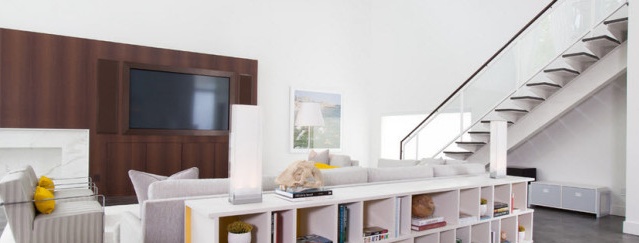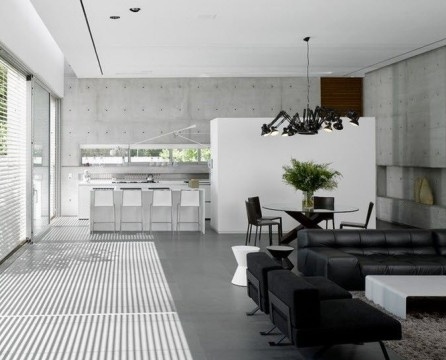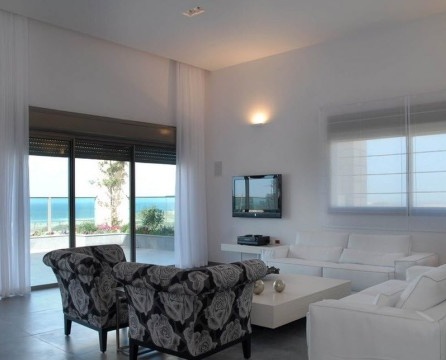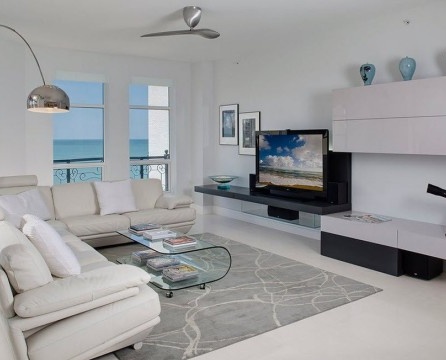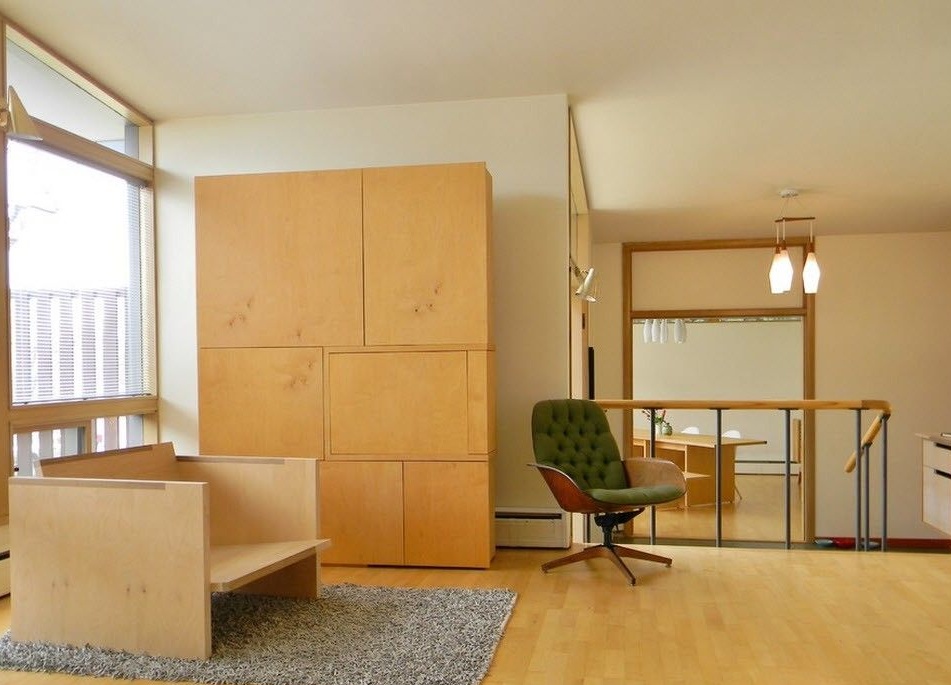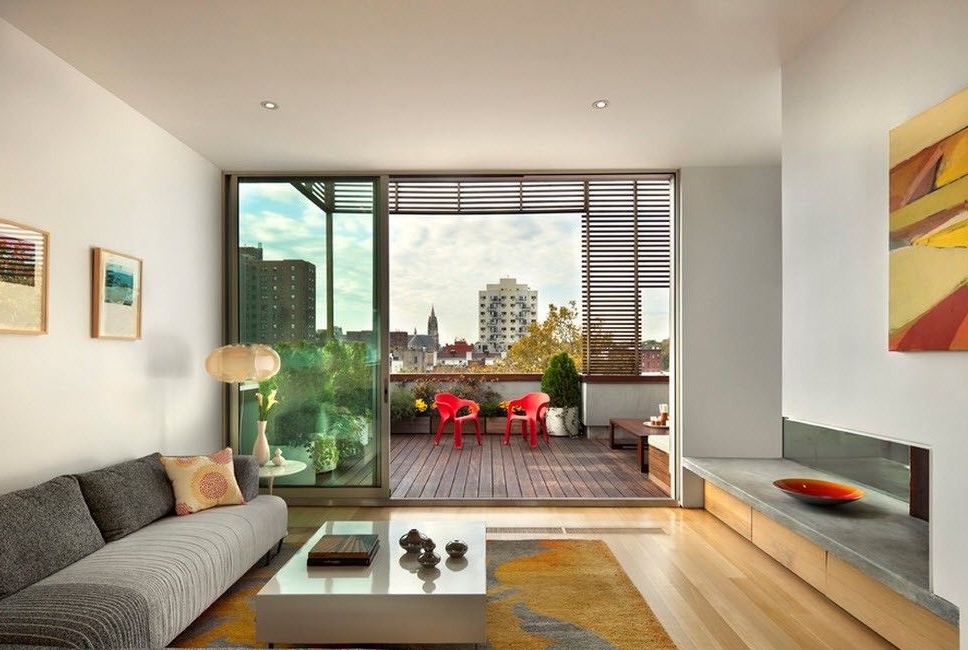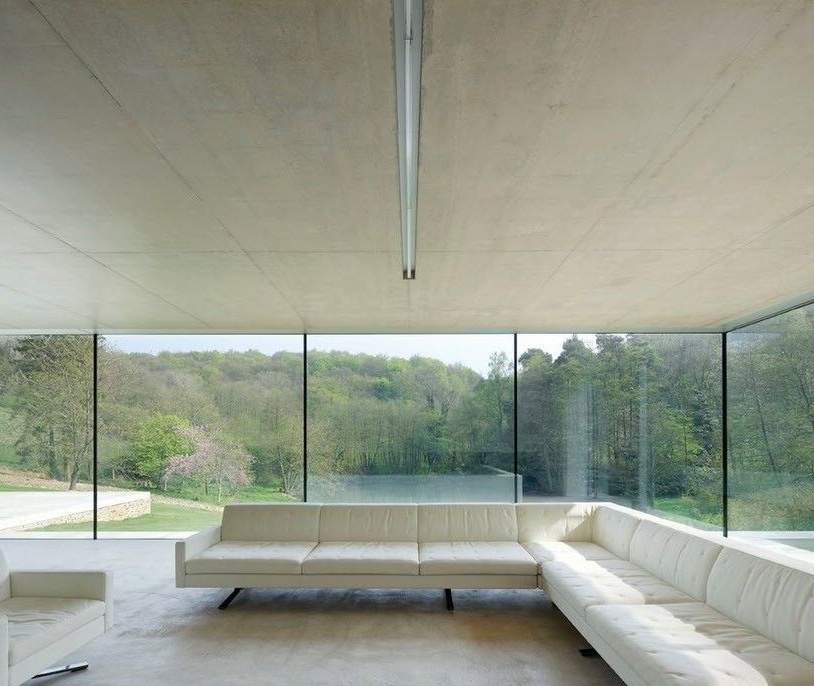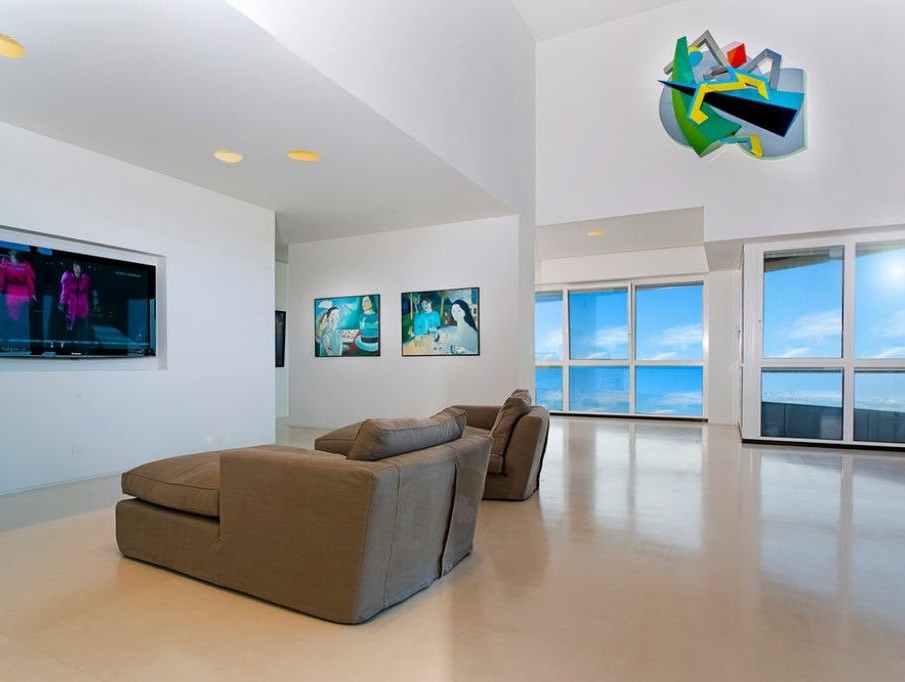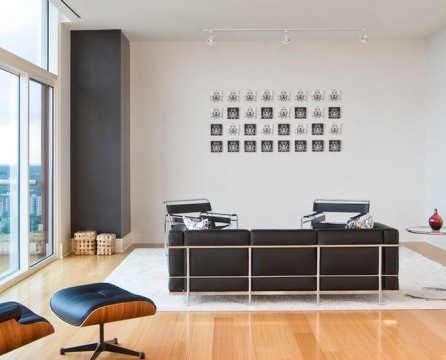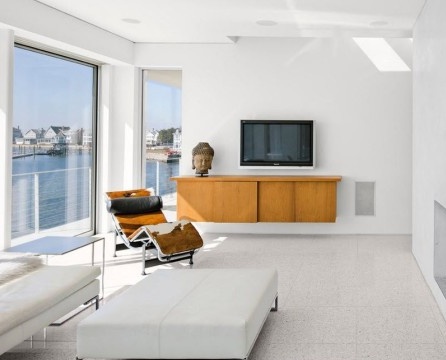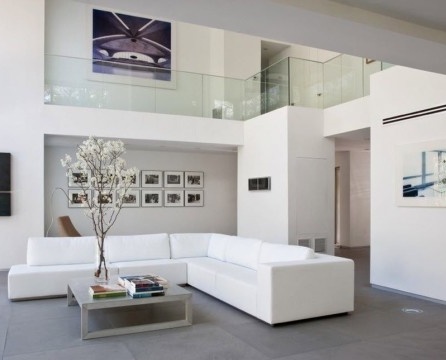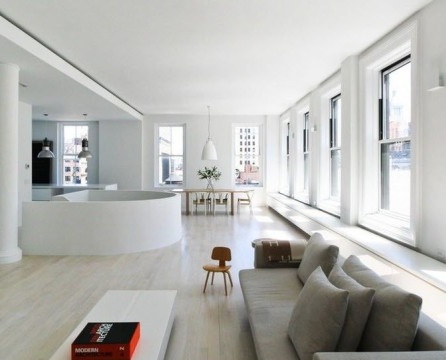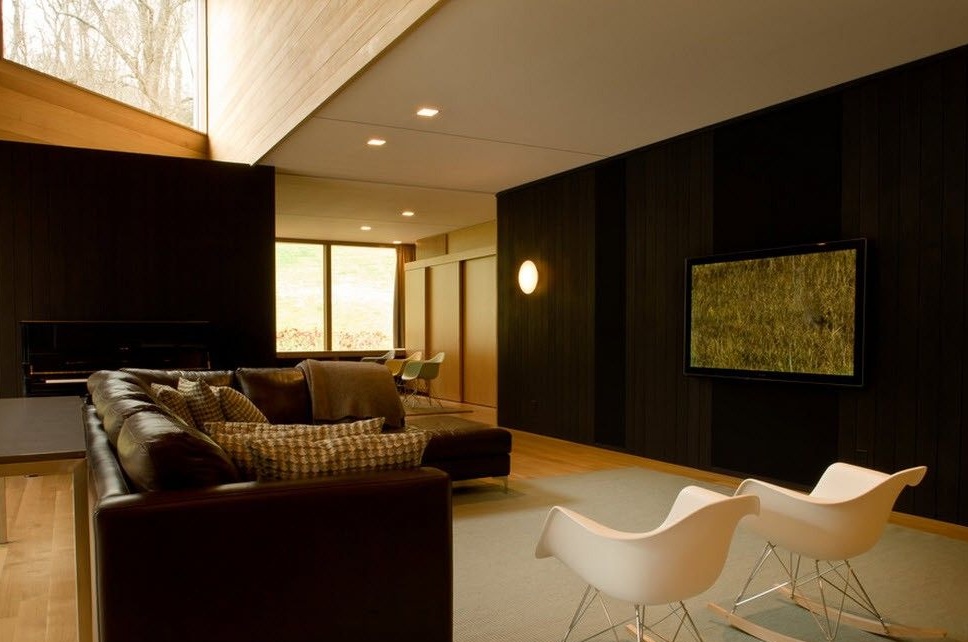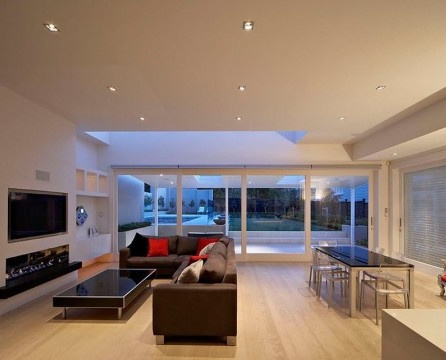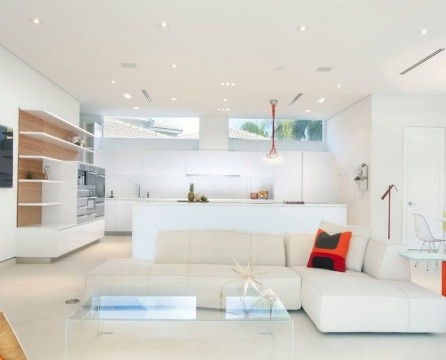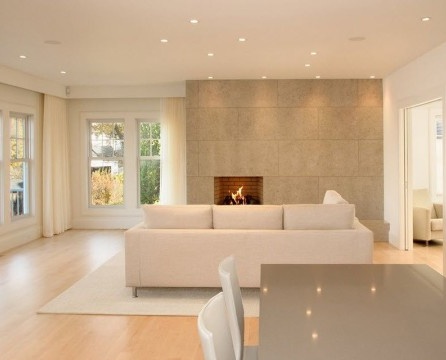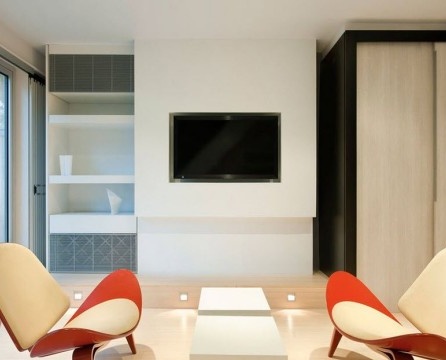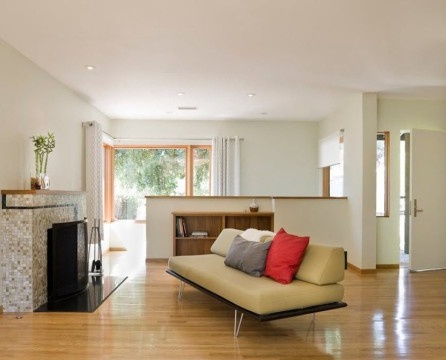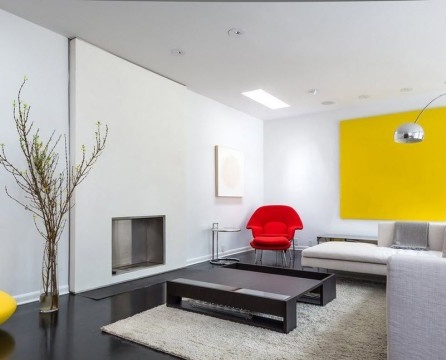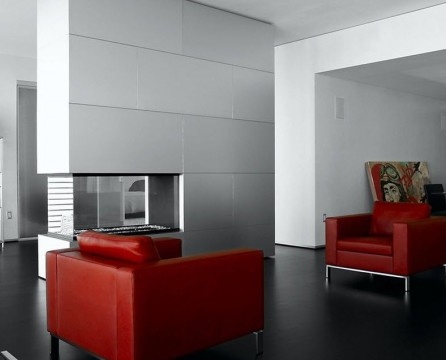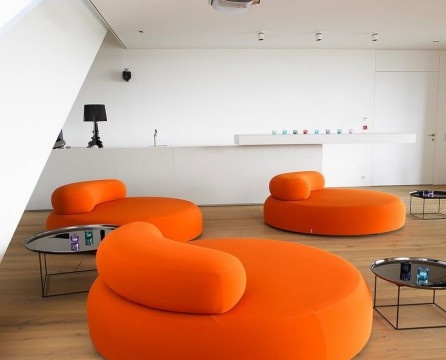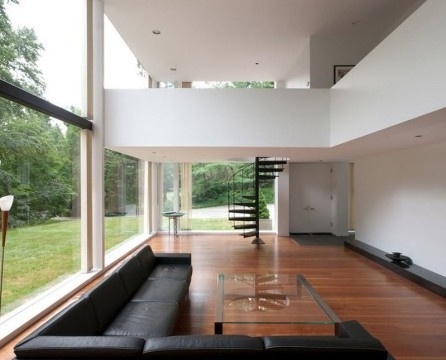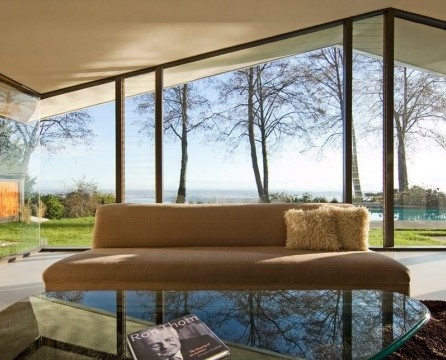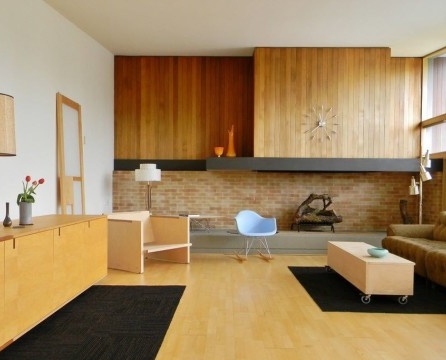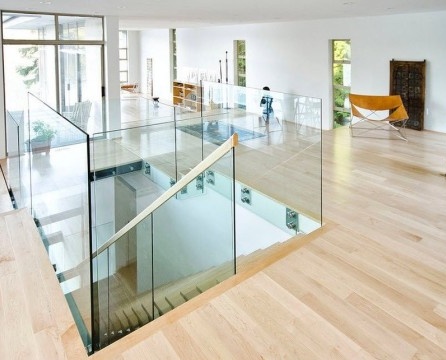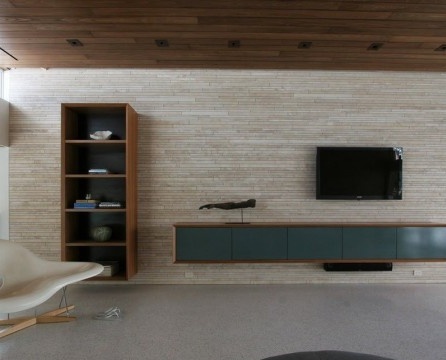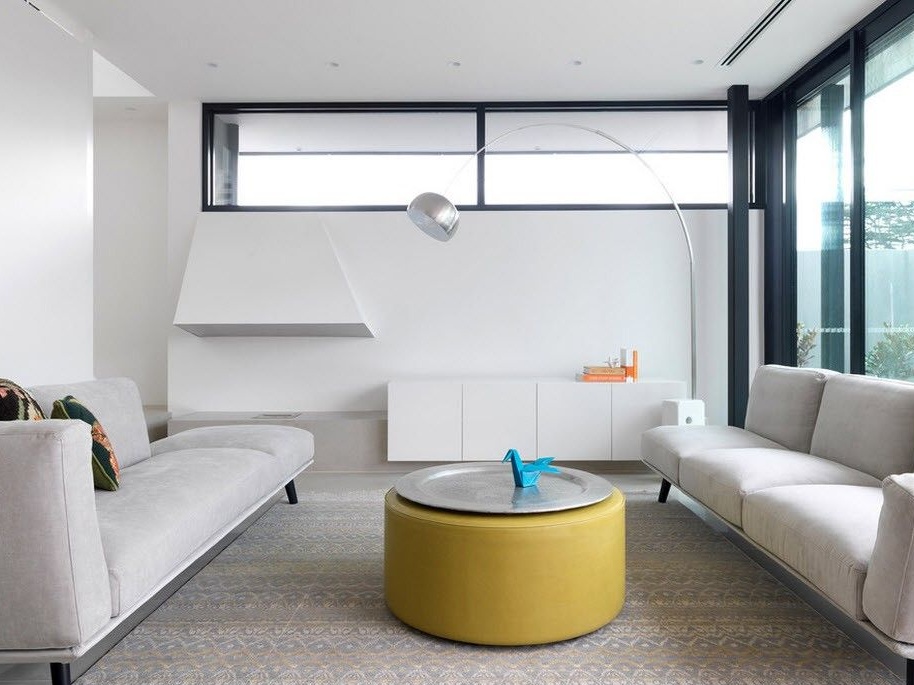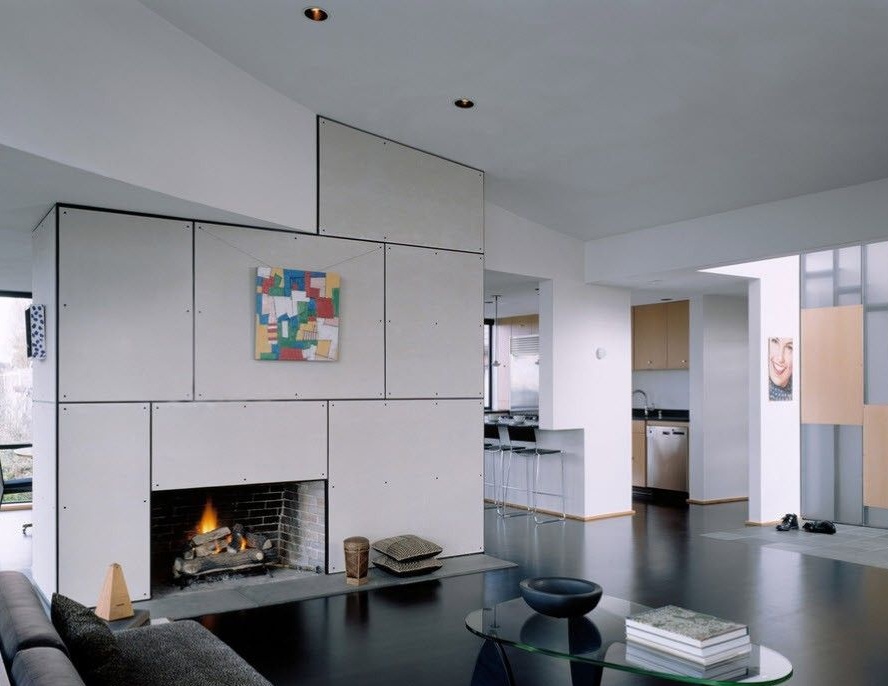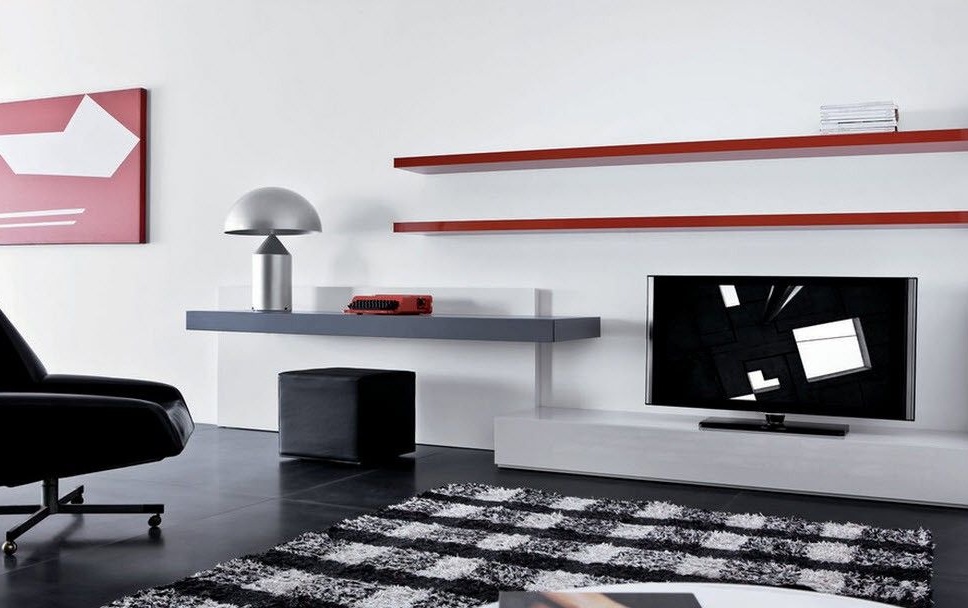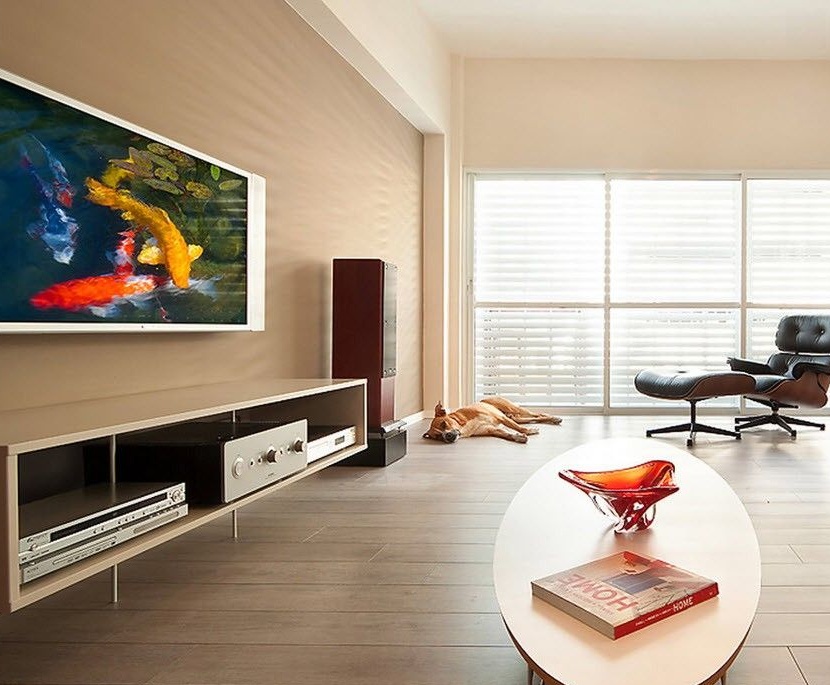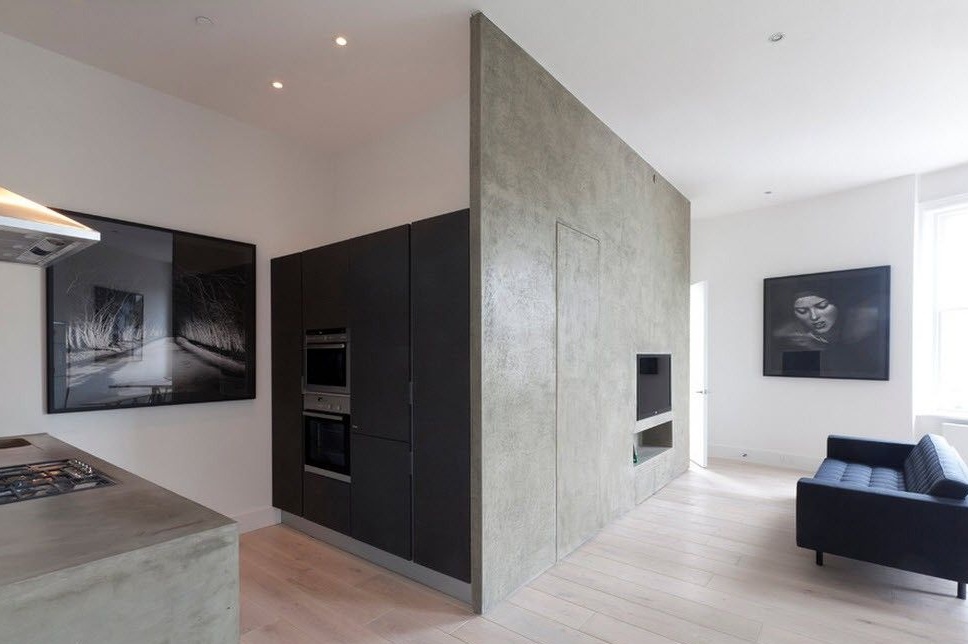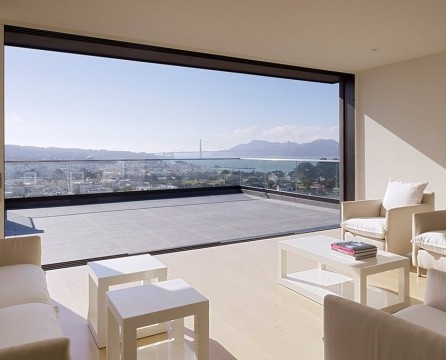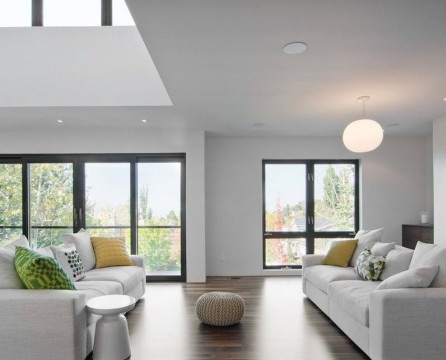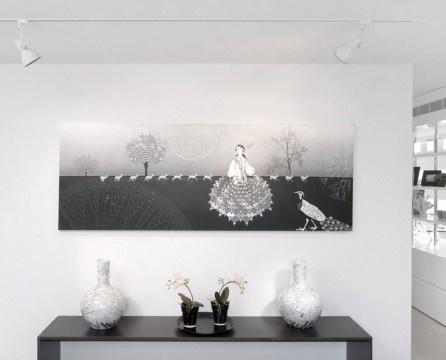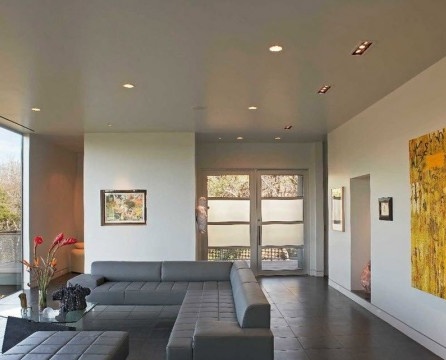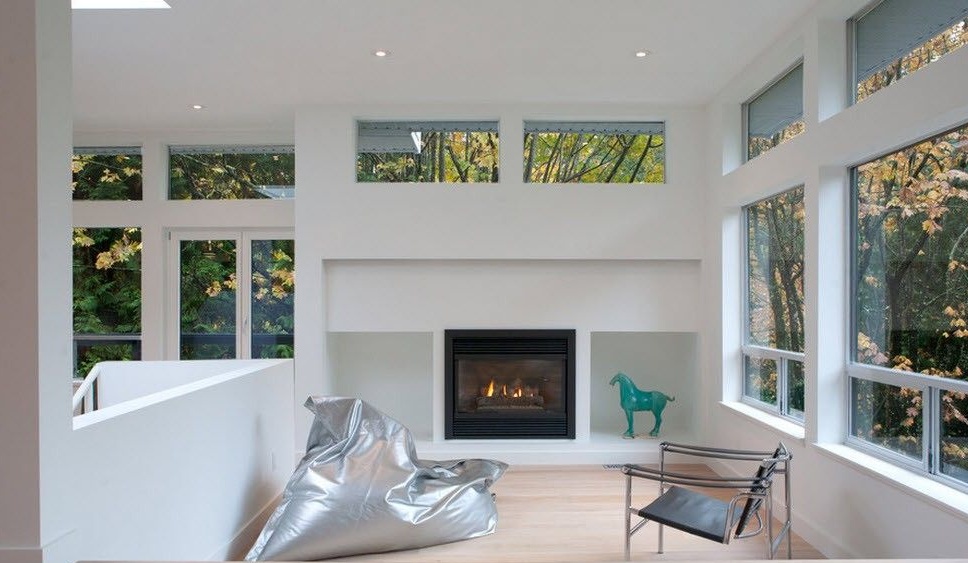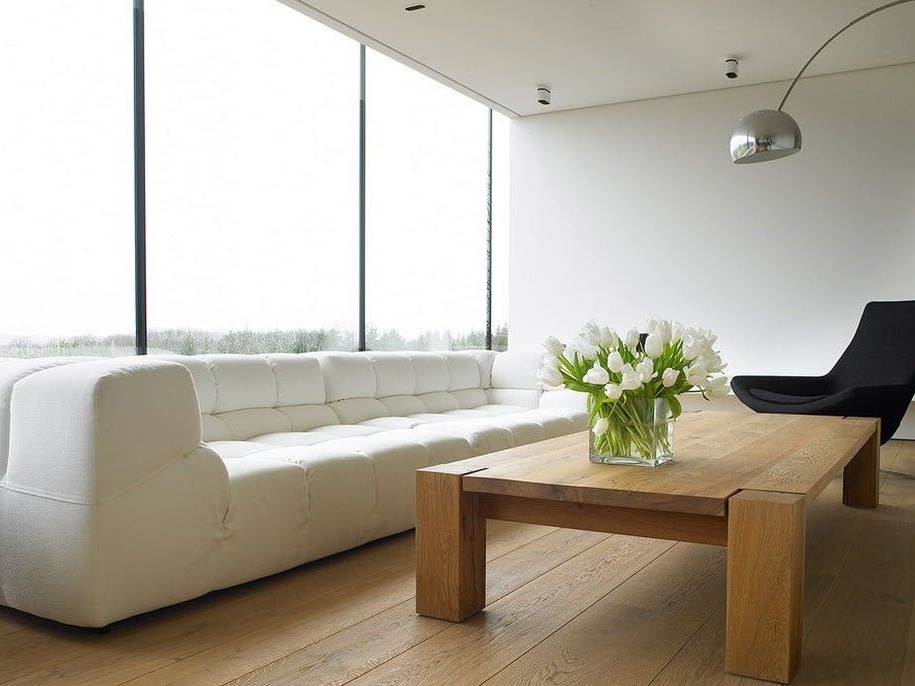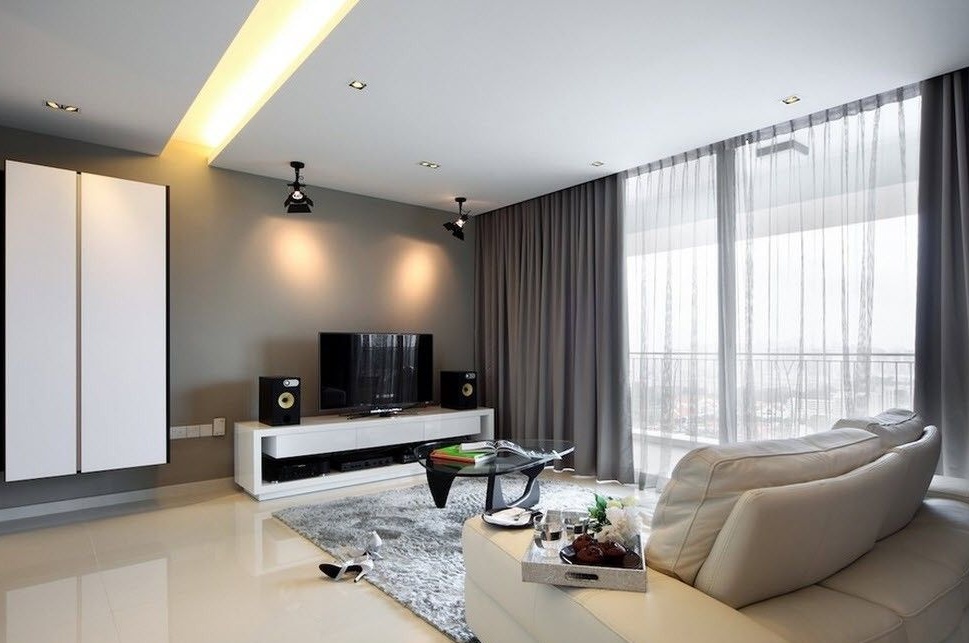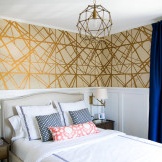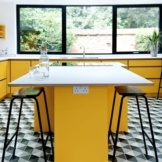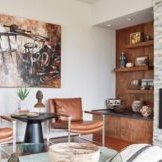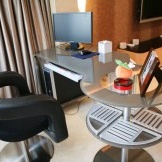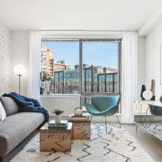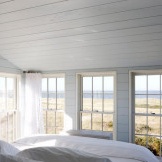Minimalism style living room: expensive?
The trends in the design of a modern living room are associated with a change in the general outlook on the purpose of this room. It is increasingly less likely to receive large and noisy companies. Carrying out large celebrations outside the home is normal today. The living room is considered as a kind of refuge after a hard working day, so its interior should calm and create conditions for maximum relaxation. It is achieved
- creating an atmosphere of space filled with air,
- compliance with the proportions
- zoning of space
- exemption from piling up items, furnishings formed from the most necessary functional furniture,
- preventing cacophony of a color palette that irritates the eyes,
- adjustable luminous flux
- strict order and harmony.
All of the above makes up the content of the concept of minimalism style.
Origin
Minimalism as a direction in design took shape in the late 60s in New York, but its origin goes back to Europe, to the ideas formulated by the German architect Ludwig Mies van der Rohe, one of the most significant creative personalities of the twentieth century. It was he who began to develop the concept of purity of forms, which formed the basis of minimalism. A huge impact on design thought had a laconic wording:
Less is more
He devoted his whole life to creating a universal and simple architecture. His works are distinguished by rigid geometrical compositions and a complete lack of decorative elements, but the “poetry” of the structures and interior items created by him consists in the exquisite craftsmanship of maintaining proportions, in the use of elegant elegant materials (for example, marble, onyx, travertine, chrome steel, bronze or hardwood ), in carefully and precisely worked out details.
In the 70s, minimalism reaches maturity and becomes a kind of reaction to the so-called pop art.
A set of furniture of strict geometric shapes with the preservation of the natural color of wood.
The facade of a spacious cabinet is closed.
The design recreates the atmosphere of a rural house of the mid-50s.
Designer James Cowan
Oriental traditions of interior decoration, in particular, Japanese, had a great influence on the formation of style.
Minimalism traits borrowed from traditional Japanese design systems -
low stands and sofas, the use of artificial stone surfaces,
symmetry in the arrangement of decor elements, colors, approximate to natural shades,
sliding doors, wooden flooring and the use of a panoramic view as an element of the interior,
red or green color accent, decorative dwarf houseplants
Features of minimalism
Minimalism is characterized by the extreme simplicity of its forms, purity of lines, neutral tones, free space, where harmony and poise reign. First of all, preference is given to large, high and open spaces.
The spacious room is visually enlarged due to the glazed walls, a panoramic view, a set of luxurious furniture with strict geometric shapes.
White gamut visually expands the space
The created environment is functional and free from any redundancy, saturation, visual pollution, cacophony of repetition. Minimalism can be considered as an aesthetic "anti-baroque". Everything in it is subordinated to softness, calmness and order, in the interior there is nothing superfluous.
In a recreation area organized by a partition,
only the most necessary upholstered furniture for relaxation in beige tones.
Decoration of a smooth partition wall - high-quality reproductions (maybe the originals ?!)
in the style of French impressionists
The philosophy of minimalism seeks to shape any space with the help of a minimum number of elements, which, in turn, should form a compositional unity, not obscured by any decorative elements. In this context, superiority is given to clean and low lines, almost at the floor level, with an absolutely monochrome gamut of ceilings, floors, walls, and carefully selected functional furniture.
Colors
One of the main features of minimalism is the use of pure colors, surfaces or monochrome layers, in soft colors the predominant ones are white and beige. Darker or even black shades may be included to emphasize details and accessories.
The inclusion of dark shades of brown in the interior serves to create an atmosphere in the relaxation area that is conducive to relaxation and meditation.
Wide modular sofas and designer rocking chairs from the Eames couple are subordinated to the same goal.
When it comes to white color, it must be remembered that it has a wide range of tint variations, capable of glowing or multiple reflection. The contrast is provided by some decorative details, which in no case should be abused. The painted part can be red or pistachio and is presented in a carpet, pillows or any one object.
Materials
Materials are another key element of minimalism. The minimalist design uses wood (mainly as furniture, flooring) and natural materials (subjected to the most necessary minimal processing): smooth cement, glass, steel wire, stone, mirrors and large areas of polished surfaces. Minimalism is not saving materials, the choice is made in favor of the highest quality, and therefore expensive.
Textile
In choosing textiles for a minimalist living room, aggressive, baroque or floral patterns should be avoided. Fabrics should bring freshness, comfort and have rest and relaxation, and it is better for them to be plain. For curtains, pillows and upholstery, natural expensive fabrics of cotton or linen are preferred, subordinate to the style unity and the main idea of design.
Upholstery, carpet colors are subordinate to the general color scheme of the interior
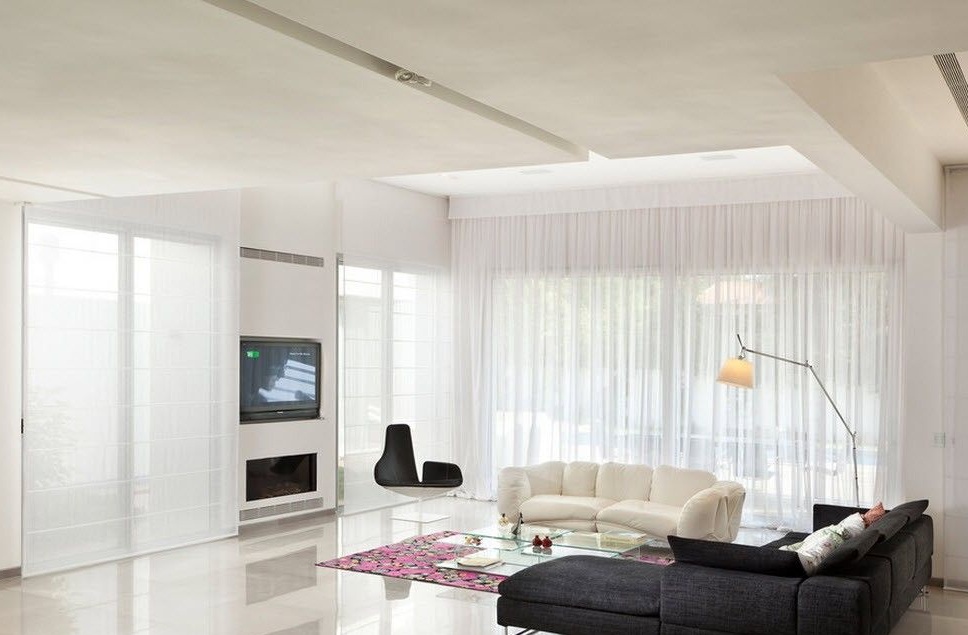 Textiles in the interior are combined or contrasted with the main white range of design
Textiles in the interior are combined or contrasted with the main white range of design
(curtains, upholstery)
enlivens the achromatic palette with floral pink patterns
(carpet, cushion covers
Furniture
Furniture is also subject to the concept of simplicity and functionality. Almost Leninist - less is more. Furniture is not always visually fixed; hidden shelves and cabinets are actively used in a modern or oriental (Japanese) style.
Shelves and cabinets in the recreation area are located behind closed facades.
Design table with glass top by Isama Noguchi
functional, decorative, expensive and prestigious
Other pieces of furniture, such as a sofa, armchairs, a coffee table, in addition to their direct purpose, play the role of an exquisite decor, if the choice is made in favor of pieces of furniture of the author's design.
A characteristic trend of minimalism is the use of cantilever furniture,
as if “growing out of a wall and freeing up space as much as possible.
Shelves (made of glass), a table, a TV stand, a seat, a decorative panel of strict geometric shapes are in harmony with the pattern of the carpet.
The color scheme of achromatic shades is complemented by a contrasting chromatic tone - red
Walls
The walls should be as free from decoration as possible, although the use of an author’s painting will be acceptable. An excellent solution would be a flat plasma screen. Smooth light walls or stone-coated as a decorative element.
Purity of style is achieved using the color scheme of light brown tones.
(color accent is created using a decor element - a red vase),
expensive wood flooring, full wall windows
(the flow of natural light is controlled by blinds), a home theater system,
concise long shelf of simple geometric shape,
and a set of furniture (a deck chair and an oval table) from cult American designers Charles and Ray Eames
Zoning space (cooking and relaxing)
achieved using smooth high (floor to ceiling) partitions.
The main color scheme is achromatic (shades of gray).
Decor elements - paintings - are made in the colors of the main palette.
Shelves and cabinets are hidden by closed facades.
Lighting
One of the main tools for creating a minimalist interior is light. A complex lighting system is being created: cornice light, floor lamps, side light, tube lamps, rotary with the ability to control the light flux, warm halogen directional light (to emphasize individual interior details), LED (only for decorative purposes, and not as the main one) , natural lighting due to wide windows and glazed sections of the roof.
Nsome nuances
Minimalism goes well with buildings of modern architecture, although with the right approach it can be used for older buildings.
The house of modern architecture is decorated with the techniques characteristic of minimalism -
white and beige flowers (color accent - turquoise decorative figure),
large glass surfaces, functional stylish furniture
Minimalism is in perfect harmony with the oriental-style furnishings, although as a result the style will become eclectic.
Minimalism is suitable for very neat people who can not violate the aesthetic order, accumulate unnecessary things that can destroy the created style. Therefore, it is said that minimalism is not intended for disorganized natures.
Minimalism is a new aesthetic, it is the choice of those who look to the future and have the courage to abandon old traditions.
A space filled with air, light from various sources,
calm colors, closed facades of cabinets,
monochrome colors of curtains, curtains, upholstery and soft carpet -
romantic minimalism for a modern family.

